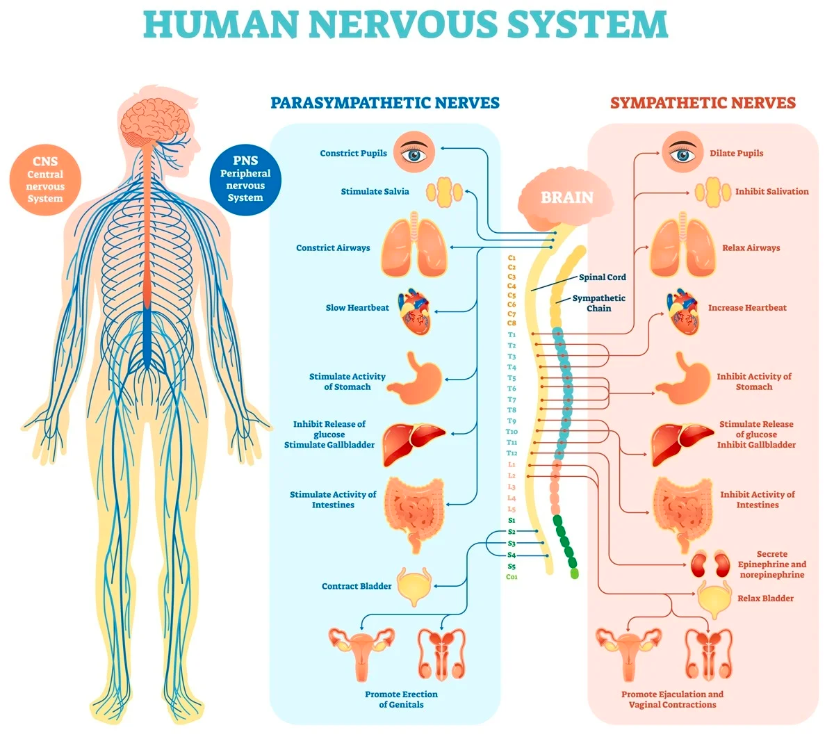5 Signs Your Gut Health is Declining and What to Do About It
March 12, 2021
Your gut, also known as the “second brain”, plays a vital role in your overall well-being. Failing to give this system the care it needs can take a toll on your mind and body, preventing you from reaching your full potential at work and home. This is why it’s SO important to ensure this system is nourished and monitored for signs of illness. Let’s dive into the key signs of poor gut health and what you can do to keep this system strong and healthy.
Sugar Cravings
Constant consumption of sugar can result in an abundance of bad bacteria in your microbiome. This imbalance of bacteria usually leads to a dependency on sugar where you want to begin eating healthier, but due to the composition of your microbiome, you will only feel satisfied by sweets and sugary foods. So despite the unpleasant side effects of eating too much sugar, you reach for the bag of Oreos and continue to feel sluggish throughout the day.
So what are the long-term effects of this vicious cycle? Eating too much sugar results in high levels of inflammation in the body. Inflammation causes an array of health issues from mental illnesses like anxiety and depression to autoimmune diseases like multiple sclerosis or lupus. I’m not saying this to scare you; I’m saying this to help you understand how your body responds to certain foods so you can learn how to protect it. And the good news is you don’t have to give up sweets forever— moderation is key!
Skin Irritation
Your skin is your body’s first layer of defense against viruses, bacteria, and environmental factors, so it’s no secret we need to keep it healthy and strong. However, research has shown that chronic stress and inflammation of the gut can weaken and compromise the integrity of our epidermal barrier. This is why your skin flares up after eating highly processed foods or too much sugar. Minor cases of skin irritation show up as acne and premature aging, and more severe cases are characterized by eczema and skin rashes.
Fatigue
Chronic fatigue is frustrating and seemingly unmanageable at times. It may lead you to become dependent on caffeine, sugar, and midday naps, and even those three things combined still have you exhausted by 7 pm. It should come as no surprise by now that fatigue is highly linked to inflammation in the gut. An unhealthy gut leaks toxins into the bloodstream; when your body is constantly fighting these toxins, it must work hard to produce high levels of immune cells. Studies show that the level of these immune cells is directly related to the severity of chronic fatigue symptoms.
Food Intolerances
I have preached this before, and I will preach it again: Food intolerances are a symptom of poor gut health, not a root cause. The connection between food allergies and your gut is a two-way street that can be tough to tackle. The increased passage of undigested food particles through the weakened intestinal wall (caused by chronic inflammation) contributes to the development of food allergies.On the flip side, experiencing an allergic reaction causes a notable increase in intestinal permeability. If this phenomenon is a frequent occurrence, it may increase the number or severity of food allergies you have. In other words, an unhealthy gut can cause you to develop allergies to foods you may normally be able to digest perfectly well.
Symptoms of depression
The link between depression and a damaged intestinal barrier has been thoroughly researched and proven. The toxins released by leaky gut syndrome trigger inflammatory proteins called cytokines. Cytokines change the production and transmission of neurotransmitters responsible for your mood, leading to negative emotions and fatigue. Additionally, the gut produces 90% of the body’s serotonin, otherwise known as the happy, feel-good hormone. Serotonin is responsible for mood stability and communication between cells in the nervous system, and keeping high levels of this hormone is crucial for maintaining your mental well-being.
How can I heal my gut?
While the gut healing journey looks different for everyone and is dependent on lifestyle, genetics, severity of symptoms, and environmental factors, there are a few things you can start doing now to begin the healing process.
Assess your diet
One of the best things you can do for your gut is to cut down on highly processed foods, refined carbs, and sugars. These are the foods that have been causing inflammation in your body, leading to the unpleasant symptoms listed above. Your gut favors a diet consisting of leafy greens, fatty fish. nuts and seeds, and fermented foods. Keep in mind a change in diet doesn’t have to be boring or dreadful— trust that you will find foods and recipes that nourish your body AND are super delicious. It’s all about experimenting!
Practice sleep hygiene
Your gut needs a full night’s rest to heal and function optimally. A few nights in a row of bad sleep can actually weaken your intestinal barrier and impact the composition of your microbiome. Start incorporating a nighttime routine to wind down every night. You can include sleepytime tea like chamomile or lavender, reading a book, yoga, meditation, or anything that helps you relax before bed. It’s also important to stop using your cell phone before bedtime (if you do, make sure your blue light filter is on!). And another little tip in case you find yourself struggling to sleep: Release the anxiety of having to fall asleep. The more you worry about not being able to sleep the harder it will become to drift into a state of relaxation. Remember, if you cannot sleep you can at least rest your body.
Kick stress to the curb
Stress is your body’s worst enemy, yet it is something many of us deal with on a daily basis. For some people, it is to the point where you stress about your stress! I could suggest the typical stress relief remedies like yoga, meditation, and hot baths, but the truth is stress relief looks different for everyone. For some people it’s talking to a friend on the phone or dancing it out. For others it’s being in a state of creativity like playing an instrument or painting. Keep trying different things until you find what works best for you. And remember, no matter what life throws at you, you will get through it and you will become stronger because of it.
Health doesn’t have to be hard
Realizing your gut is not in the best shape can be overwhelming. The symptoms associated with poor gut health can be unpleasant, and many of these issues resemble a cycle that is hard to break. However, with time, habit change, and a lot of self-love, your body can and will heal itself.
Need support on your gut healing journey? I’m here for you! Book a call with me here and we’ll work together to identify a path to becoming the healthiest you.
Leave a Reply Cancel reply
Featured
Read
Podcast
Have you tuned in?
Chelsea interviews professionals to bring YOU today’s most updated knowledge on nutrition and wellness.





[…] if you’re in need of some things you can do right now, the tips I highlighted in this blog will […]